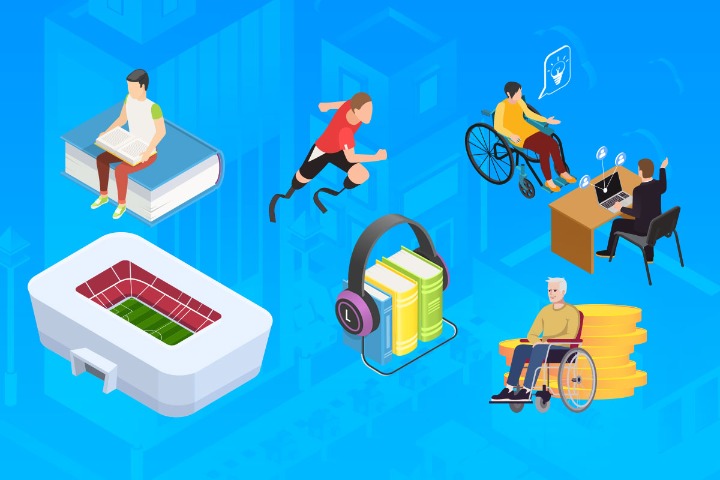Funding for blind opens up opportunity

Targeted measures provide training, employment as massage therapists
Over the past decade, more than 350 massage institutions employing the visually impaired in the Xinjiang Uygur autonomous region have received special support funding of over 7 million yuan ($1.05 million), which has been earmarked for the promotion of the massage industry and the employment of visually impaired massage therapists.
According to the region's disabled persons' federation, there are more than 130,000 visually disabled people in the region. Among them, around 4,000 have obtained health massage and medical massage qualifications.
"We have taken targeted measures to promote employment and entrepreneurship for the visually disabled, such as organizing massage training, supporting their work in medical institutions and opening their own medical massage institutions," said Cai Hongyan, director of the federation's employment service center.
"Each medical massage institution is eligible to receive a support fund of 20,000 yuan."
After years of efforts, the region has established a training system for visually impaired massage therapists utilizing vocational secondary schools for the disabled and blind massage institutions, according to Cai.
The employment service center has carried out a variety of promotional activities, such as inviting massage experts to provide guidance, which has helped create a more inclusive learning platform for massage therapists to exchange skills and experience.
Zhang Wanju received his support funding in 2014.
"I'd opened a small massage shop in Zepu county, Kashgar prefecture in 2011, which could only just support my basic living," he said. "After receiving the 20,000 yuan in funding, I expanded my shop from 20 square meters to 50 and increased my income with the help of another two blind massage therapists I employed."
Zhang, 46, was born to a rural family in Kashgar, his vision gradually degraded from his childhood due to retinitis pigmentosa, a rare eye disease.
"I didn't continue my study after graduation from junior middle school because of my family's poverty and my own visual problems," he said. "I knew I would finally lose my sight, so I began to learn bone-setting and massage like other local blind massage therapists."
Zhang lost the remainder of sight in 1996. He was employed in various positions in hospitals and other medical institutions for a few years until he finally started his own business in 2011.
"In 2010, I joined a free training course held by the prefecture's disabled persons' federation for visually disabled people," he said. "During the four-month course, we studied theoretical knowledge, including traditional Chinese medicine theory, anthropotomy and meridians, and we took part in practical exercises."
After the course, he passed the health massage therapist exam and acquired his qualification certificate.
After expanding his business in 2014, Zhang was able to save every year and put a lot of his money into further improving his skills, studying across the country, such as in Urumqi, Beijing and the provinces of Shandong and Guangdong.
He also took advantage of various free courses run by the local disabled persons' federation, such as a course on operating computers for visually disabled people.
"The internet is used everywhere in our daily lives, but it is particularly difficult for us to operate a computer," he said. "The course enabled us to take advantage of voice assistance and thus gain greater access online."
That particular course helped Zhang succeed in an online exam for medical massage therapists in 2018.
In June 2017, he moved to Urumqi to seek more opportunities and further grow his business.
"I have received various support from the local federation in Urumqi since I opened my blind massage shop here," he said. "I hope more disabled people like me can have a good life through these efforts."
According to the region's disabled persons' federation, in the past five years, more than 180,000 people with disabilities have found stable jobs in the region. Meanwhile, relevant policies have been improved to protect the rights and interests of workers with disabilities.




